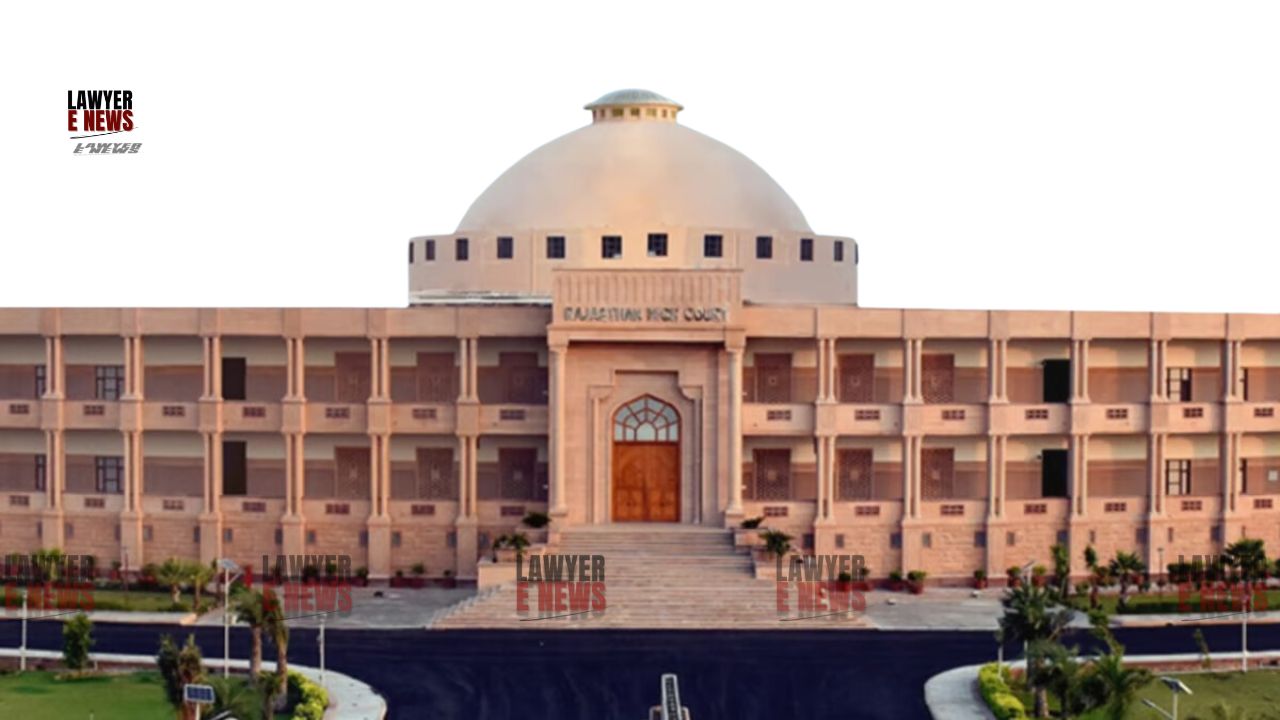-
by Admin
15 February 2026 5:35 AM



The High Court reverses the trial court’s life sentence verdict against Bhimsen, emphasizing inconsistencies and the lack of conclusive evidence. In a significant ruling, the High Court of Rajasthan at Jodhpur has acquitted Bhimsen, who was previously convicted and sentenced to life imprisonment for the murder of his wife, Meera. The Division Bench, comprising Justices Pushpendra Singh Bhati and Yogendra Kumar Purohit, highlighted the insufficiency of circumstantial evidence and numerous inconsistencies in the prosecution's case, thereby overturning the trial court’s decision.
The case dates back to February 2, 1989, when Ramkaran, the father of the deceased Meera, reported her disappearance and subsequent discovery of her body in a water tank (Diggi). Bhimsen, Meera's husband, was convicted by the Additional District and Sessions Court, Raisinghnagar, for her murder, based on circumstantial evidence and an alleged extra-judicial confession. The defense appealed the conviction, arguing that the evidence was neither conclusive nor corroborated.
Circumstantial Evidence: The High Court meticulously examined the chain of circumstantial evidence presented by the prosecution. The court underscored the need for a comprehensive and unbroken chain of evidence to establish guilt conclusively. In this case, the court found significant gaps and ambiguities.
"The prosecution's case must exclude every possible hypothesis except that of the accused's guilt. Here, the evidence presented falls short of meeting this standard," noted the bench.
Inconsistencies in Witness Statements: The court pointed out several contradictions in the testimonies of key witnesses, particularly regarding Bhimsen's presence and behavior after Meera's disappearance. Notably, there were conflicting accounts of the alleged extra-judicial confession.
"The statements of P.W.1 and P.W.2 about the extra-judicial confession were inconsistent and delayed, rendering this piece of evidence weak and unreliable," the judgment stated.
Lack of Forensic Evidence: The court criticized the failure to conduct forensic examinations on crucial pieces of evidence, such as the cloth allegedly used to strangle Meera and the footprints found at the scene.
"The absence of forensic analysis on the key evidence casts serious doubt on the prosecution's narrative," the court observed.
The judgment emphasized the principles of evaluating circumstantial evidence, referencing landmark Supreme Court rulings. The court reiterated that circumstantial evidence must be consistent, conclusive, and should not leave room for alternative explanations.
"In cases resting solely on circumstantial evidence, it is paramount that the evidence forms a complete chain pointing unequivocally to the guilt of the accused. In the present case, such a chain is conspicuously absent," the bench remarked.
Justice Bhati noted, "The conviction must rest on firm and unambiguous evidence. The numerous inconsistencies and the lack of corroborative forensic evidence in this case undermine the prosecution's claims."
The High Court's decision to acquit Bhimsen underscores the judiciary's commitment to ensuring that convictions are based on robust and conclusive evidence. This judgment not only provides relief to Bhimsen but also reinforces the legal standards required for securing convictions in cases reliant on circumstantial evidence. The case serves as a crucial precedent, emphasizing the necessity of thorough and reliable investigations in criminal cases.
Date of Decision: May 28, 2024
